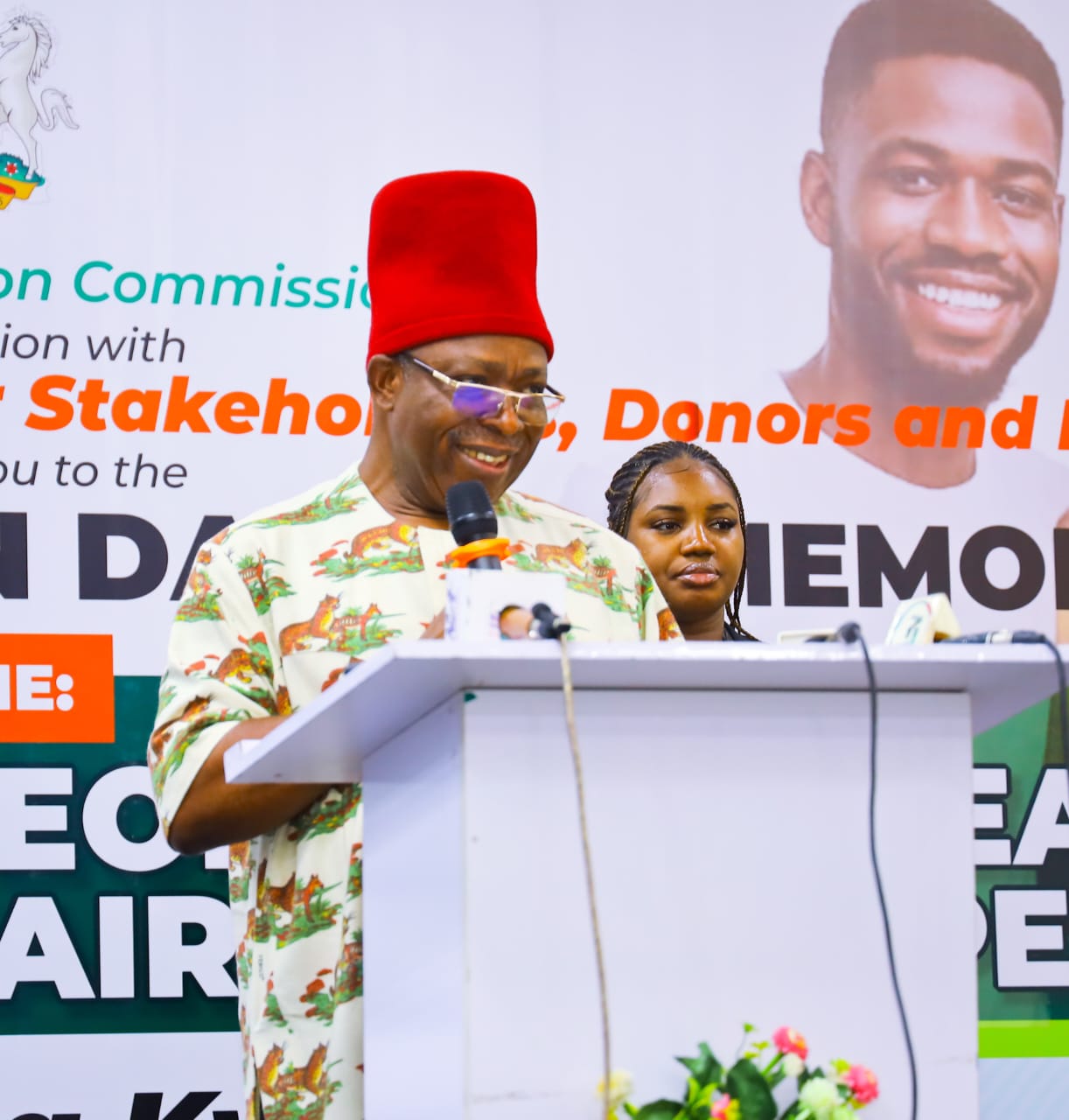By Ene Oshaba
The Chairman Senate Committee on Population, Senator Victor Umeh, has called for urgent investment in Nigeria’s youth and accelerated action towards a national census, emphasizing that accurate population data is critical for national development.
Umeh stated this in his speech at the 2025 World Population Day (WPD) commemoration, organized by the National Population Commission (NPC) in collaboration with the United Nations Population Fund (UNFPA), under the theme: “Empowering Young People to Create the Families They Want in a Fair and Hopeful World.”
According to him, empowering youth with access, education, and decision-making capacity is essential for building a prosperous and equitable Nigeria. He reaffirmed the commitment of the National Assembly to supporting the NPC through legislation, funding, and oversight, especially in the build-up to the proposed population and housing census.
“Government needs to accelerate its plans towards conducting a national census. The cost notwithstanding, if you don’t have the exact number of people in your country, you cannot plan for development. You may end up either under providing or over providing resources.”
He emphasized the need for data-driven planning and youth-focused policies, noting the challenges of relying on outdated census data from 2006.
“Yesterday, someone said Nigerians are over 300 million. I couldn’t fault him because we don’t have a recent count. Even the best statisticians can’t keep guessing forever we need real data.”
Umeh applauded young people for their knowledge and digital fluency, stressing the importance of creating a system that listens to them and plans for their future.
“These young people are more aware and more knowledgeable than many of us. They live in a digital world where information is power. We must empower them to make choices when to marry, how many children to have on their own terms.”
He commended the NPC and UNFPA for their dedication and reiterated the National Assembly’s readiness to provide the necessary resources for an inclusive, timely, and comprehensive census.
“Let us use this occasion to renew our collective resolve to count everyone, invest in every young person, and build a fair and hopeful Nigeria where no one is left behind.”
In his welcome address, Chairman of the National Population Commission, Nasir Isa Kwarra, stressed the urgency of harnessing Nigeria’s youthful population for national growth.
According to him, youth aged 15 to 29 account for 28% of Nigeria’s estimated 230 million people, representing a powerful demographic opportunity if properly managed.
“These are not just statistics they are our students, our workers, and our future leaders. This is not a crisis, it’s an opportunity. But only if we invest in education, skills, health, and decent jobs.”
He advocated for data collection reforms and compliance with the 10-year census cycle to provide accurate information for policy development and planning.
“Empowering young people is not charity; it is a sustainable development strategy. Our job is not just to provide services, but also to listen to them.”
Kwarra praised partners like UNFPA for their support and reaffirmed NPC’s dedication to data generation, population policy implementation, and reproductive health advocacy.
The United Nations Secretary-General, represented by Ms. Elsie Attafuah, emphasized that the 2025 World Population Day theme reflects a universal truth, stressing that youth must have the freedom and systems to make informed decisions about their future.
According to her, over 70% of Nigerians are under the age of 30, making it imperative to create systems that support youth choices, especially in reproductive health, education, and livelihoods.
“Girls in particular are denied the right to decide when and how many children to have. This is more than a public health challenge it is a development emergency.”
Quoting the UN Secretary-General, she stressed that youth are not just shaping the future they are demanding one that is inclusive and sustainable.
“Let us match their energy with enabling environments. Let us honor their dreams with determined action.”
She outlined UN commitments to expand education, health access, gender equality, and data-driven policy implementation.
Chairman of the Management Committee of FP2020, Dr. Ejike Oji, reflected on government efforts to revise the National Population Policy, highlighting five key areas for transforming Nigeria’s population bulge into a demographic dividend.
According to him, reducing fertility rates, improving healthcare, expanding vocational education, creating jobs, and promoting accountable leadership are essential.
“If we are deliberate and intentional, Nigeria can turn its youthful bulge from a threat into a dividend. But we must take bold, data-driven steps now.”
The Minister of Women Affairs Imaan Sulaiman-Ibrahim represented by the Ministry’s Permanent Secretary underscored the importance of inclusive identity systems and targeted investment in girls and women especially in rural areas, saying they are often excluded from services due to lack of identification.
“You can’t plan for what you don’t know. We must prioritize registration and documentation for all women, boys, and girls.”
“When every woman, boy and girl is counted, empowered and protected, our nation becomes stronger, fairer and more prosperous.”
In a powerful address that drew emotional applause, 17-year-old youth representative, Bestowed Tamunolanyeofori Hephzibah, appealed decision makers to stop excluding young people from policy processes that directly affect their futures.
According to her, young people want more than tokenism they want to shape decisions about their bodies, education, families, and lives.
“Far too often, critical decisions are made without us at the table. That’s a problem,” she said.
“If we’re not part of the conversation, how can we expect the world to reflect our dreams and hopes? We’re not just future leaders—we are today’s leaders. Our voices, choices, and actions are already shaping Nigeria.”
Referencing Malala Yousafzai’s global impact at a young age, Hephzibah called on her fellow youth to step up and demand inclusion and accountability.
“When young people are empowered, communities thrive. When we’re included, policies work better. The future isn’t something we’re waiting for—it’s something we’re building now.”
The event concluded with a unified call to action for inclusive development, data-driven planning, and youth empowerment as the path to a more hopeful and equitable Nigeria.

